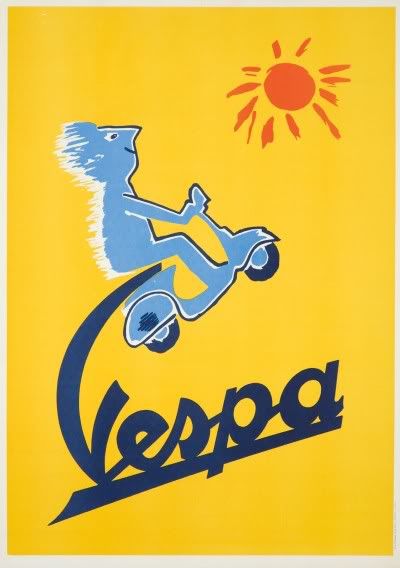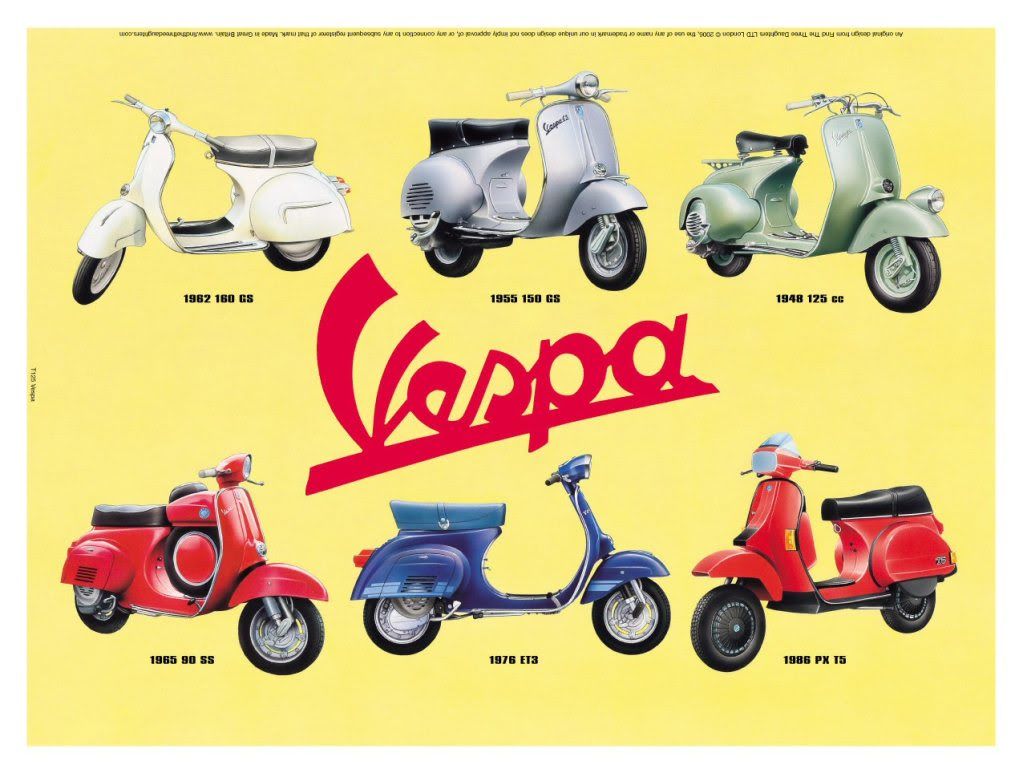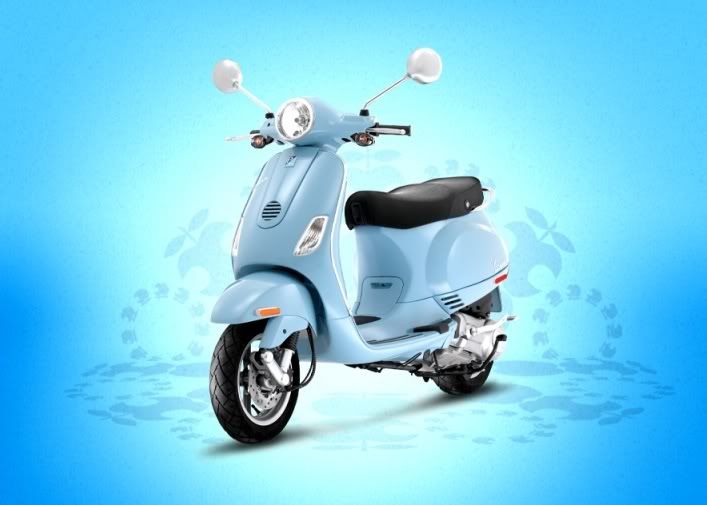Piaggio Museum, Florence- June 1, 2011
Practical, sleek and effortlessly glamourous, Piaggio's Vespa is the epitome of classic Italian design. Since its birth in the 1940's, the Vespa has held its place as one of the most iconic vehicles the world has ever seen. An instant phenomenon, Vespa was unlike anything that had ever come before it, and is still unlike anything that has attempted to succeed it. Renowned for its comfort, convenience and innovative form, Vespa revolutionized travel for commuters across Europe, and subsequently, across the planet.

A classic vespa ad.
Not only did Piaggio design the actual scooter, but also the images that accompany it- completely changing the way that people relate to their vehicles. Promoting utility, versatility, style, and personal freedom, Piaggio made driving their new vehicle extremely desirable. Owners were portrayed as being both trendy and smart, and soon enough the little scooter was a prominent status symbol in European society.
The Evolution of Vespa as a product is distinct, as all successive models have remained similar to the original version. The most dramatic changes to its form were made between 1953 and 1955 in order to improve comfort, but since then alterations have been minimal. Although mechanical parts and physical characteristics of the scooter have been slightly tweaked or improved, direct links can be seen between the original version and each of its offspring. Even the most modern of models possess all of the main characteristics of the original prototype. The history of the product has been crucial to its progression and the traditional form of the scooter helps to sustain its identity in the eyes of the consumer.
- Laura M, Jessica and Kelvin



No comments:
Post a Comment